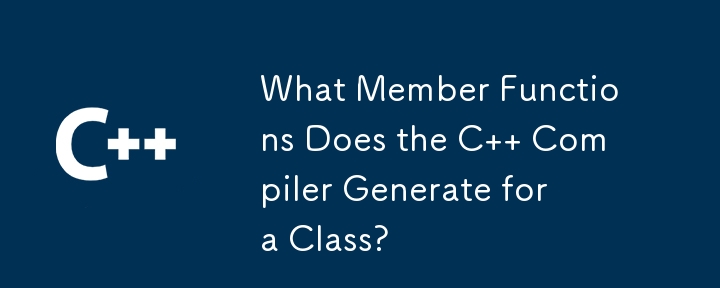
Specific Member Functions Generated by the Compiler for a Class
For a given class, the compiler may generate specific member functions based on the class definition and the availability of user-defined implementations. These member functions include:
C 98/03
-
Default Constructor: The compiler generates a default constructor if the class does not define any constructors.
-
Copy Constructor: A copy constructor is generated if the class does not declare its own copy constructor.
-
Copy Assignment Operator: Similarly, a copy assignment operator is generated if the class lacks a user-defined implementation.
-
Destructor: The compiler generates a destructor if the class does not define its own.
It's important to note that these member functions are only generated when needed. If they remain unused, the compiler will not create them.
C 11
C 11 introduces additional rules for compiler-generated member functions:
-
Move Constructor: If the class lacks copy constructor, copy assignment operator, move assignment operator, and destructor, a move constructor may be generated, assuming the class and its members are movable and the move constructor is not marked as deleted.
-
Move Assignment Operator: Similarly, a move assignment operator may be generated under the same conditions.
Significance of the Default Constructor
The default constructor serves several purposes:
- It allows instances of the class to be created without specifying arguments.
- It initializes the class's data members to default values.
- It enables the use of containers and algorithms that require default construction.
- It facilitates the creation of objects dynamically (e.g., using "new").
The above is the detailed content of What Member Functions Does the C Compiler Generate for a Class?. For more information, please follow other related articles on the PHP Chinese website!






